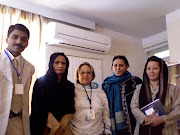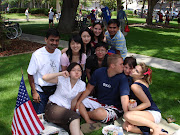7 Habits of Highly Positive People: The Secret to Constant Happiness
1. Don’t let bad things pull you down
Highly positive people take bad things and see the good things in them.
Bad things can happen to anyone. The difference between a positive person and a negative one isn’t the events that happen to them but how they respond to those events. While negative people let bad things pull them down, positive people don’t. They take bad things and make the best out of them.
As Randy Pausch once said, “We cannot change the cards we are dealt, just how we play the hand.”
A great example is Oprah Winfrey, one of the most influential women in the world. She was, for a time, the world’s only black billionaire. Oprah may be rich and successful today, but she faced extreme hardship as a child.
When she was born up till the age of six, Oprah lived in rural poverty with her grandmother. She was so poor that she often wore dresses made of potato sacks, for which the local children made fun of her for.
When she was nine, Oprah was sexually abused–by the people closest to her, her cousin, uncle, and a family friend. At 13, after years of abuse, Oprah ran away from home. She was pregnant at 14 but her son died shortly after birth.
She attended an affluent suburban high school, Lincoln High School, but had her poverty constantly rubbed in her face as she would ride to school with fellow African-Americans who were servants of her classmates’ families.
Despite this extreme hardship, Oprah did not let it get her down. She overcame her adversity to become a benefactor to others, first becoming a radio anchor at 19, then having her own daytime talk show The Oprah Winfrey Show at 22. Through the show, she has helped millions of people around the world, empowering people to take charge of their life and drawing from both her life lessons and her interviewees’ life lessons to inspire others.
If Oprah had caved in the face of hardship, she would never be where she is in life. She is such a positive light because she chose to make the best out of difficulties she was dealt with and subsequently use these lessons to help others.
Likewise for you, don’t ever let yourself get pulled down by your difficulties. Rather, ask yourself what you can learn from them and how you can turn them around to create the life you seek. Such a proactive approach is the start to living an empowered, happy life.
2. Appreciate every good thing that comes your way
Highly positive people are grateful for every good thing that comes their way.
A month ago I conducted a 14-day gratitude challenge on my personal development blog, Personal Excellence, to over 200 participants. Aside from the assigned gratitude tasks to be done one task a day, I asked my participants to identify at least three things to be grateful for every day.
While it was awkward to deliberately find things to be grateful for at the beginning, many participants quickly eased into the task after a couple of days. From friendships, to daily coffee, to burnt toast, to family vacations, to life itself, many gained a new-found appreciation for these very things which they tended to take for granted.
The participants emerged from the challenge more appreciative and positive of life, even though their lives have technically not changed much compared to before the challenge.
Many of us tend to focus on the negative things in life and that naturally makes us feel negative. Why not pay attention to the many great positive things in our lives instead? For example, instead of being upset at the traffic jam you are in right now, why not be grateful for the vehicle you get to drive?
Instead of lamenting about your lousy boss, why not be grateful that you have a boss to lament about as opposed to being retrenched or unemployed? You’ll be surprised to see how many great things you already have going on with this little mindset shift.
3. Lead a well-rounded life
Highly positive people lead a well-rounded life. This means they don’t let work take over their life; neither do they let their relationships override their personal agenda.
I used to devote all my attention to work, to the point where I deprioritized my social life and my personal leisure. While it was great fun working since my work (helping others to grow) is my passion, I became very uninspired after a while because I was neglecting my other life areas. This was when I realize the importance of a well-rounded life to my emotional well-being.
So today, I ensure that I devote time to the core areas of my life: career, love, family, friends, self (through recreation), and contribution. My life wheel video shares the 11 core areas that make up our lives (collectively termed as the “life wheel”) and how to start achieving a 10/10 in all the areas.
4. Deal with your problems right away; don’t let them linger
Highly positive people deal with their problems right away rather than ignore them.
One thing I consistently teach on my blog and in my coaching is not to ignore your problems. Because ignoring your problems doesn’t mean that they will go away. Often times they will linger around and weigh you down subconsciously, even though you don’t realize that.
For example, I used to be an emotional eater where I would eat in response to my emotions like stress and sadness. For a long time I never dealt with this problem, choosing instead to drown myself in food whenever I felt bad.
Later I realized that I was utterly miserable because my stress eating (a) was causing me to gain extra weight, and (b) had turned me into a slave of food. It was only two years ago when I began tackling this issue and a year ago when I achieved complete resolution.
A simple tip to deal with your problems is to (a) keep a record of all outstanding issues you’d like to deal with, then (b) work on them one at a time. Sometimes it can feel overwhelming tackling multiple problems, but doing it one at a time will help you to manage things easily.
5. Let go
Highly positive people let go of the things that do not support them in living a conscious and positive life. This includes toxic and negative relationships.
I once had to let go of a deep friendship of 10 years because we were severely holding each other back. While I was always working on bettering myself, he tended to procrastinate on his own development and would at times live vicariously through my progress.
His lack of proactiveness in living the life of his dreams would negatively impact me as we had always agreed to work on our life goals together and take action together as best buds. I also felt that I was responsible for his inactions if he was truly living vicariously through my own goal progress.
While we tried to work things out in the beginning, it never happened. All our attempts to resolve this issue drained us as we kept going round in circles. After years as buddies, we were simply not compatible as each other’s good friend anymore.
We finally parted ways after 10 years and we immediately felt relieved of a dead weight.
Looking back I wish we had moved on earlier because the later years of our friendship actually drained us more than they helped us to grow.
Think about the negative things in your life right now — from toxic people, to energy vampires, to negative beliefs, to unhappy thoughts, to things that trigger unhappy memories — and start letting go of them, one by one. The sooner you let them go, the happier you will be.
6. Take responsibility for your life
Highly positive people take responsibility for their lives because they realize that happiness is a choice.
For all the problems, heartaches, toxic people, and baggage you are facing, take responsibility for them. While you may not have created those problems and they may be the result of others’ misactions, you can still take responsibility for experiencing them. Doing so puts you in the position to put a stop to them.
For example, I once experienced a heartbreak with someone I liked. While initially I faulted him for bringing me such pain and anguish, it was only in the later years when I took responsibility for my emotions and the situation that I was finally able to move on.
I later realized that I can literally control my happiness by taking responsibility of my negative emotions (and subsequently my life). Because it’s when I do that I can then take action to address my unhappiness and the situations causing it, rather than putting blame on others. Subsequently, I was able to easily move on from two other relationships that didn’t work out.
7. Spread love and kindness (by helping others)
Last but not least, highly positive people spread love and kindness to others without expecting to get anything back in return.
One of the most rewarding things one can do in life is to help others. This is something I have experienced every day for my past five years of running my personal development blog.
The changes I see in my readers’ lives, the happy looks on their faces, and the deep emotional shifts they experience from reading my articles or attending my courses — these bring so much joy into my life and are reason enough for me to continue what I’m doing forever.
While some of us may think that we need to achieve X status or Y age before we can help others, that’s not true at all. The simplest things can help others: one little phone call to a distanced friend, one pat on the back to congratulate a co-worker for a job well done, or a shoulder to lean on for a friend in need.
I started my blog at a relatively young age of 24 which most people wouldn’t think of as an old-enough age to offer help or advice to others. That was a limiting belief on their part though, because we can always help others no matter how old we are or where we are in life.
In the past five years I was able to help many break through limiting careers, let go of toxic relationships, gain strength from hard moments, excel in their goals, and achieve greater heights by simply focusing on helping those I can help, one step at a time.
If I had thought that one person couldn’t make a difference, I wouldn’t be sitting here writing this blog post today, and neither would I be running a personal development blog or doing life coaching for others.
You have more power than you think you have, so use that to help others. You will find that when you give, you will naturally receive in return as well.
Source: http://www.positivityblog.com/index.php/2013/10/16/7-habits-of-highly-positive-people/













